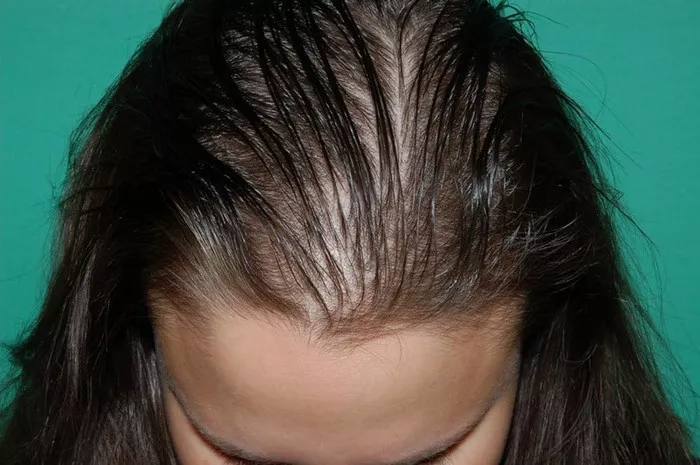Hair care myths are a dime a dozen, and one that has persisted for years is the idea that leaving your hair wet can lead to hair loss. But is there any truth to this notion, or is it just another unfounded belief? In this article, we will dissect the myth and provide you with evidence-based information to set the record straight.
The Science Behind Hair Growth and Loss
Hair growth and loss are complex processes influenced by genetics, hormones, and environmental factors. Hair follicles cycle through stages: anagen (growth), catagen (transition), and telogen (rest). Genetics determine hair follicle sensitivity to dihydrotestosterone (DHT), a hormone linked to hair loss in conditions like male pattern baldness. Hormonal changes, such as during pregnancy or menopause, can affect hair growth. Nutrient deficiencies and stress may also contribute to hair loss. Additionally, environmental factors like UV radiation and pollution can damage hair and hinder growth. Treatments like minoxidil and finasteride target these mechanisms to promote hair growth, but results vary among individuals.
Types of hair loss
Hair loss, medically known as alopecia, encompasses various types:
1. Androgenetic Alopecia:
Most common in both men and women, it’s often hereditary and results in gradual, patterned baldness.
2. Alopecia Areata:
An autoimmune disorder causing patchy hair loss on the scalp or body.
3. Telogen Effluvium:
Triggered by physical or emotional stress, illness, or medication, leading to a sudden shedding of hair.
4. Traction Alopecia:
Caused by constant pulling or tension on hair follicles, often due to tight hairstyles.
Wet Hair and Hair Loss: Is There a Connection?
Wetting hair doesn’t directly cause hair loss, but it can make hair more fragile and prone to breakage if mishandled when wet. Vigorous towel-drying or brushing while wet can lead to hair damage. Wet hair is in a weakened state, and excessive tension can cause it to break. Also, consistently wearing hair tightly pulled back when wet (e.g., in a tight bun) can cause stress on the hair shaft and potentially lead to a condition called traction alopecia. It’s essential to handle wet hair gently, use a wide-toothed comb, and avoid harsh styling practices to minimize damage and maintain healthy hair growth.
Preventing Traction Alopecia
To prevent traction alopecia and maintain healthy hair, follow these guidelines:
1. Use a Wide-Toothed Comb
When your hair is wet, use a wide-toothed comb to detangle gently. Avoid brushing when hair is soaked, as it is more vulnerable to breakage.
2. Avoid Tight Hairstyles
Avoid tight hairstyles like tight ponytails or braids, especially when your hair is wet. These styles can exert excessive tension on the hair shaft.
3. Pat Dry, Don’t Rub
After washing your hair, pat it dry with a soft towel instead of vigorously rubbing it. Rubbing can create friction and damage wet hair.
4. Limit Heat Styling
Minimize the use of heat styling tools on wet or damp hair, as it can weaken the hair structure. Use heat protectants if necessary.
Hair Loss Factors to Consider
While leaving your hair wet doesn’t directly cause hair loss, it’s essential to consider other factors that may contribute to hair loss:
1. Genetics
Heredity plays a significant role in hair loss. If you have a family history of hair loss, you may be more prone to it.
2. Medical Conditions
Certain medical conditions, such as alopecia areata, thyroid disorders, and hormonal imbalances, can lead to hair loss.
3. Nutritional Deficiencies
A lack of essential nutrients, such as iron, zinc, and biotin, can impact hair health and contribute to hair loss.
4. Stress and Lifestyle
Chronic stress, poor nutrition, and an unhealthy lifestyle can all contribute to hair loss.
See Also: Can a Brain Tumor Cause Hair Loss: Things You Need To Know
Conclusion: Wet Hair Isn’t the Culprit
In conclusion, the myth that leaving your hair wet causes hair loss is just that—a myth. However, it’s crucial to handle wet hair gently to prevent conditions like traction alopecia. Hair loss can result from various factors, so it’s essential to consider your overall hair care routine and consult a professional if you’re experiencing excessive hair loss. With the right care and knowledge, you can maintain healthy, beautiful hair without unnecessary worry about wet hair causing hair loss.


